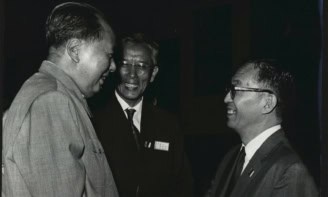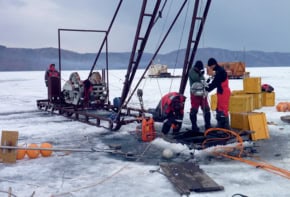The Japanese physicist Sakue Yamada has been appointed the first research director of the International Linear Collider (ILC) — a next-generation particle accelerator that could be up and running in 2019. Yamada, who is emeritus professor at the University of Tokyo, will coordinate the international effort to develop detector technologies for the collider.

Yamada was appointed by the International Linear Collider Steering Committee (ILCSC), which is a group of particle physicists coordinating the global effort to design and build the ILC. A reference design for the ILC was released earlier this year and the project is now in the “engineering design” phase during which the details of how to build the facility will be ironed out. Yamada’s appointment is expected to last throughout this phase, which should end in 2010.
One of Yamada’s main responsibilities will be to implement procedures for deciding which two of four proposed detector designs will be used at the facility. He plans to appoint an International Detector Advisory Group to assist him in his new role.
Yamada had been director of the Institute of Particle and Nuclear Studies at Japan’s KEK national laboratory. He was involved with detector design for the Large Electron and Positron Collider (LEP) at CERN and worked on several experiments at the DESY particle physics lab in Germany.
The ILC is seen by particle physicists as the next big facility after the Large Hadron Collider at CERN, which is due to start taking data in May 2008. The ILC will be about 31 km long and will smash together electrons and positrons at energies of at least 500 GeV. A location for the ILC has not yet been selected and the facility is expected to cost as much as $15 bn to build.



